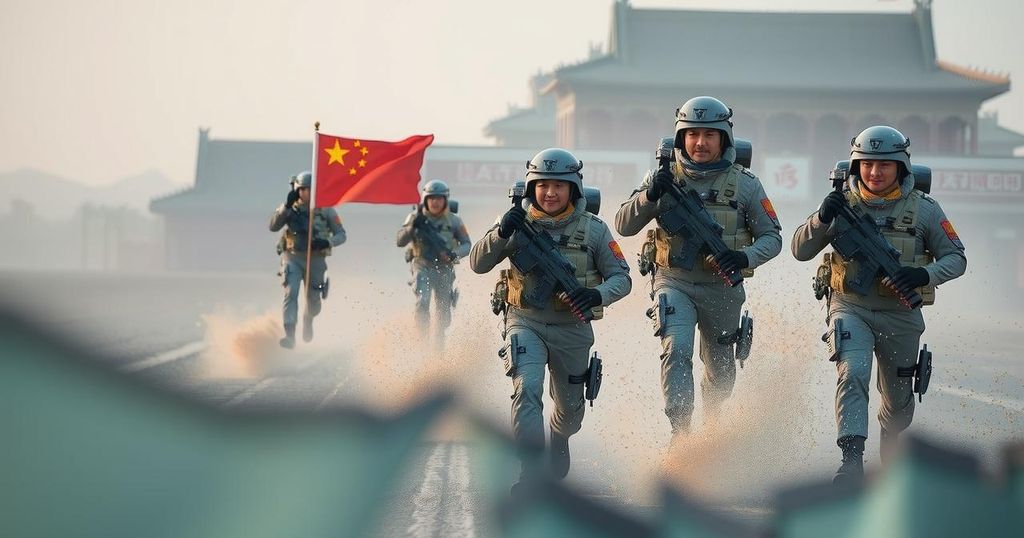China has intensified military activities ahead of Trump’s return to the White House, showcasing new capabilities and conducting large-scale exercises near Taiwan. These moves represent significant challenges to U.S. interests as the country faces increasing threats from hybrid warfare and cyber attacks. Analysts suggest that these actions may be part of a concerted effort to influence U.S. policy on China and Taiwan by demonstrating military strength.
In the lead-up to President Donald Trump’s anticipated return to the White House, China has noticeably ramped up its military activities, showcasing its capabilities and hybrid warfare tactics. This period of military posturing not only underlines China’s ambitions but also presents a significant challenge for both the current and future U.S. administrations. With recent displays of military strength, including naval exercises and cyber operations, China is sending a clear message of its strategic intentions, as evidenced by the deployment of 90 naval vessels in the Taiwan Strait and a series of high-profile military drills.
China’s heightened military activities reflect its ongoing strategy to exert influence, particularly during pivotal political moments in the United States. These maneuvers come against the backdrop of the 2024 U.S. presidential election, marking a period of increased assertiveness from Beijing. Analysts have pointed out that China’s military exercises may serve not only as a demonstration of strength but also as a means to gauge the incoming administration’s policies regarding U.S.-China relations, particularly with respect to Taiwan and regional security.
In summary, China’s recent military operations and cyber activities serve as critical indicators of its geopolitical strategy as the U.S. braces for President Trump’s return. The implications of these displays of force and hybrid warfare tactics extend beyond immediate military concerns, affecting U.S. foreign policy and international relations with key allies. As the incoming administration navigates these challenges, it will be essential to address the evolving security landscape posed by China’s aggressive posture.
Original Source: www.businessinsider.com







